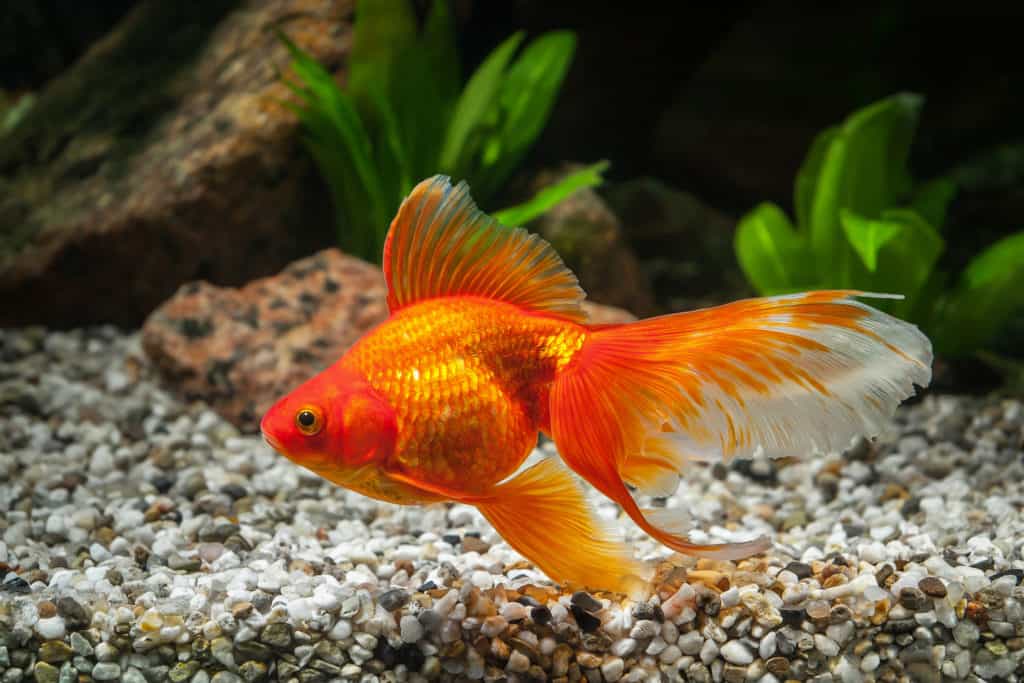
Goldfish are peaceful and friendly creatures that aren’t aggressive by nature.
They get along well with their own kind and other fish species, and in optimal living conditions, they won’t cause any problems.
Do Goldfish Eat Each Other?
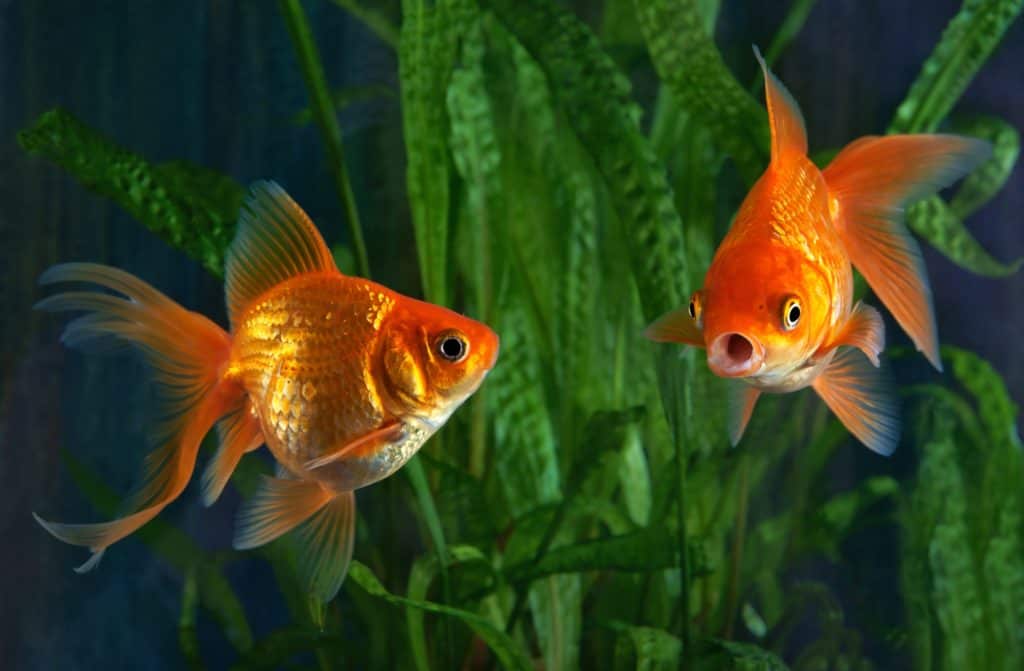
Although rare, goldfish can eat each other.
Goldfish don’t have parental instincts, and they may even eat their own eggs after breeding.
The eggs that hatch turn into small fries that adult goldfish may eat in a bite.
Plus, if a goldfish dies from sickness or stress, other goldfish may eat the body.
Goldfish can become aggressive under some circumstances and bite or harm one another.
What Can Cause Aggressive Behavior in Goldfish?
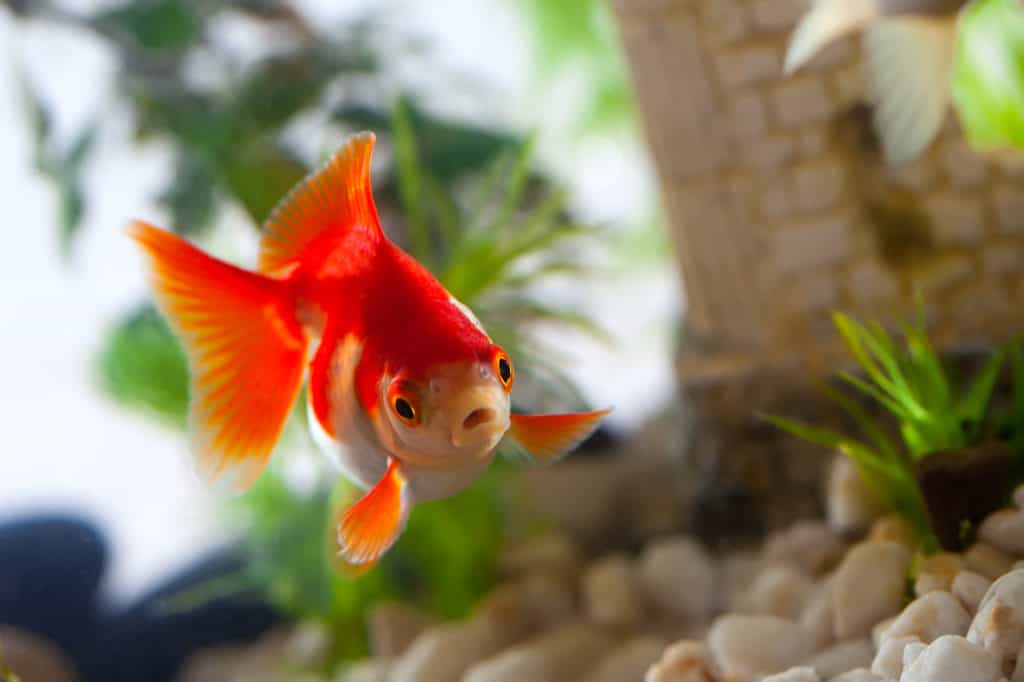
First, you need to recognize aggressive behavior and then get to the root of the issue.
Angry goldfish usually chase each other around the tank in circles.
Sometimes they can push one another into sharp or hard objects.
In the worst-case scenario, they can bite and nibble and cause fin damage.
This last scenario may seem like they’re trying to eat each other.
1. Food
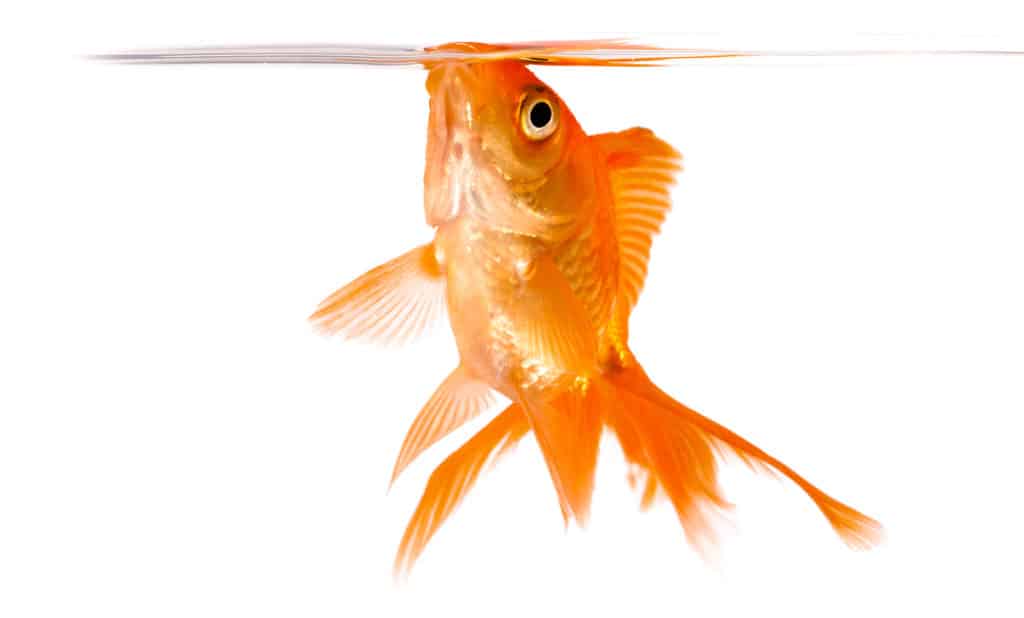
Interestingly, goldfish don’t have stomachs.
A short time after eating, the food will pass through their bodies and turn into waste.
If you don’t feed them enough, they can become aggressive and compete for food and resources.
Sometimes they can get petty and fight with their mouths full of food because they think another fish has their food.
The best thing you can do is to feed your fish two or three times a day, just enough that they can eat in a couple of minutes.
Remove any excess food after they’re done eating.
Remember, overfeeding your fish can result in sickness.
2. Spawning
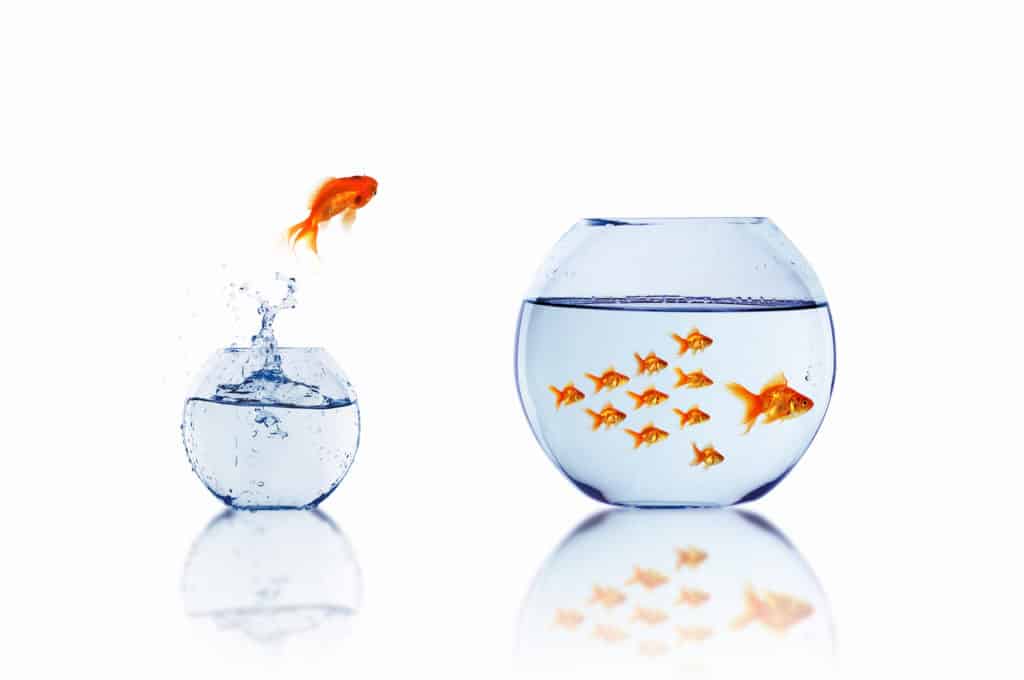
During the mating season, during spring, after a full moon, or after a large water change, goldfish can start spawning, and it can’t get any more hostile than that.
The male goldfish starts chasing the female around the tank, and you may mistake this behavior for aggression, but the truth is it’s fairly natural.
If you’re prepared to take care of baby goldfish, leave the pair be.
If not, remove the male goldfish from the tank until after the mating season has passed.
3. Living Conditions
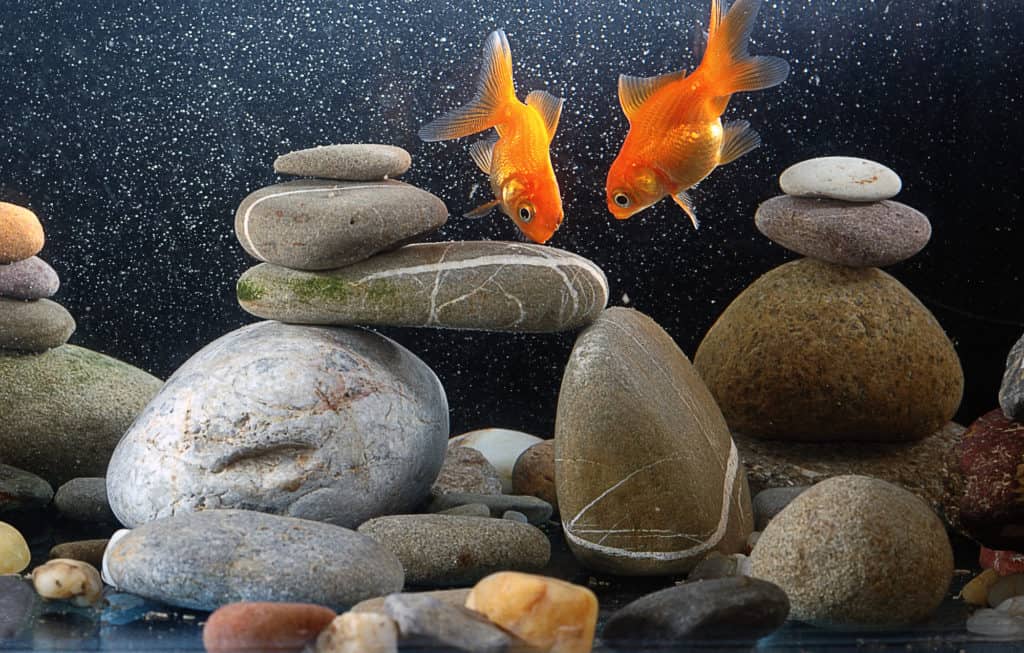
If you notice any of your goldfish picking on each other, the first thing you should consider is if your tank is overcrowded.
Goldfish can grow rapidly, and each adult goldfish needs ten gallons of water to live a healthy and happy life.
Overcrowding doesn’t always lead to aggressive behavior, and some hobbyists have tanks full of goldfish living in harmony.
However, because goldfish produce lots of waste, if you don’t change their water regularly when their population increases, the poor water condition can make them uncomfortable and lead to aggressive behavior.
4. Territorial Behavior
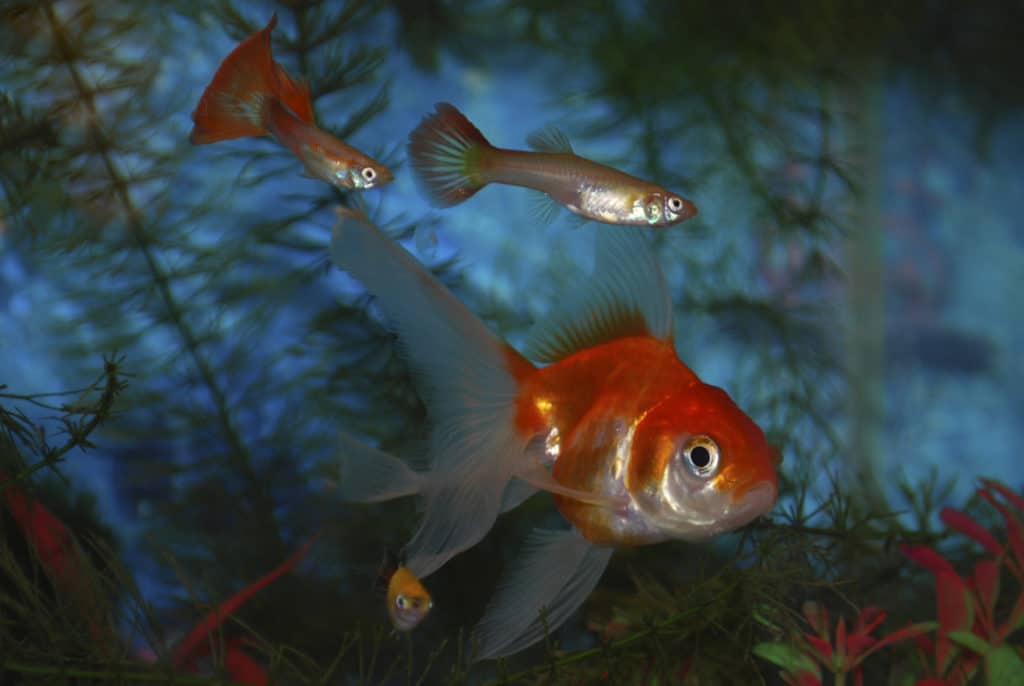
Usually, if you introduce a new fish into a tank community, it’ll try to familiarize itself with its tankmates.
Sometimes, especially if a goldfish has lived alone in a tank for a long time, it can consider a new fish to be an invader.
As a result, it tries to assert its dominance and protect its territory by showing aggressive behavior.
The problem usually goes away after a couple of weeks, but you have no choice but to separate them if it doesn’t.
5. Sickness and Weakness
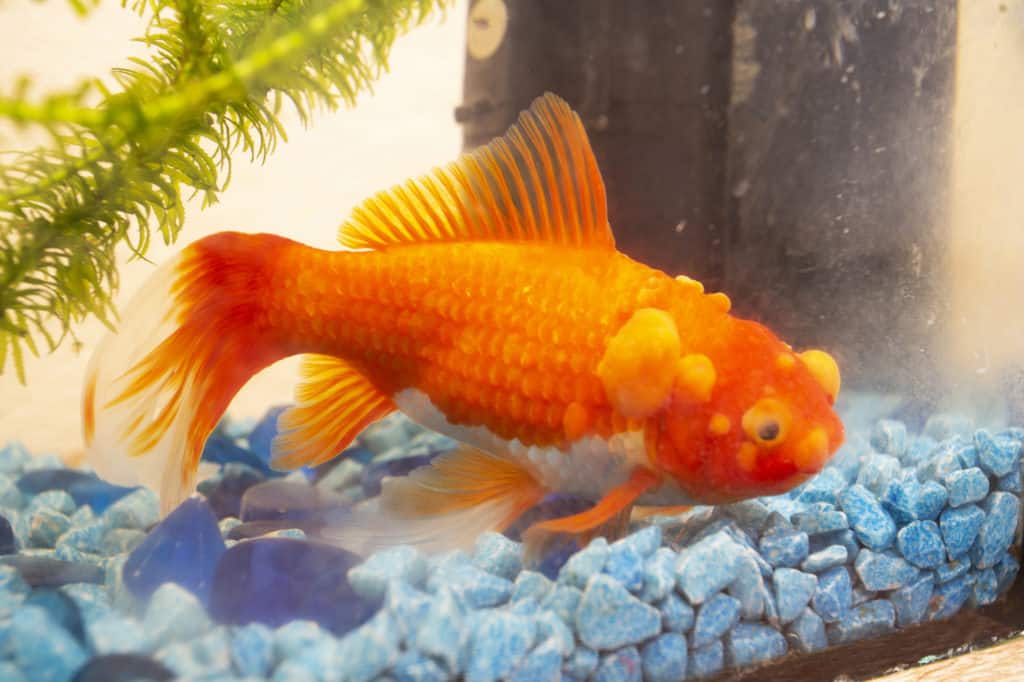
Unfortunately, goldfish don’t show any compassion towards the sick or weak members of their society.
If they notice any sign of weakness in a fish, they’ll all start attacking it.
This is probably because they see the ill fish as a threat and try to remove it to prevent a potential infection from spreading.
This situation will bring a lot of stress for the sick fish, and it’ll slow down the healing process.
The best thing to do is separate the sick fish and put it in a hospital tank until it’s had enough time to heal.
6. Varieties and Body Shapes
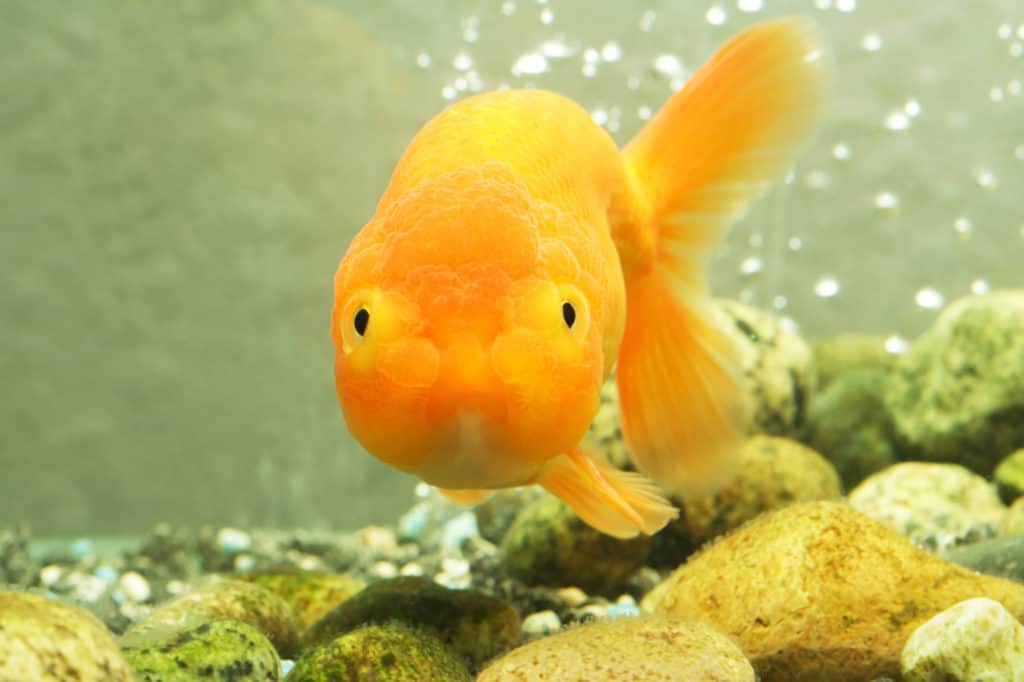
Some types of goldfish are generally more dominant and aggressive than others.
For example, the Ryukin goldfish has a more pointed head and usually attacks docile varieties of goldfish.
Some goldfish are hybrids and have unusual shapes, like longer fins.
This can trigger aggressive behavior in other goldfish, and they may cause damage.
Generally, it’s best to keep similar goldfish varieties in the same tank if you notice the fish munching on each other.
7. Personality
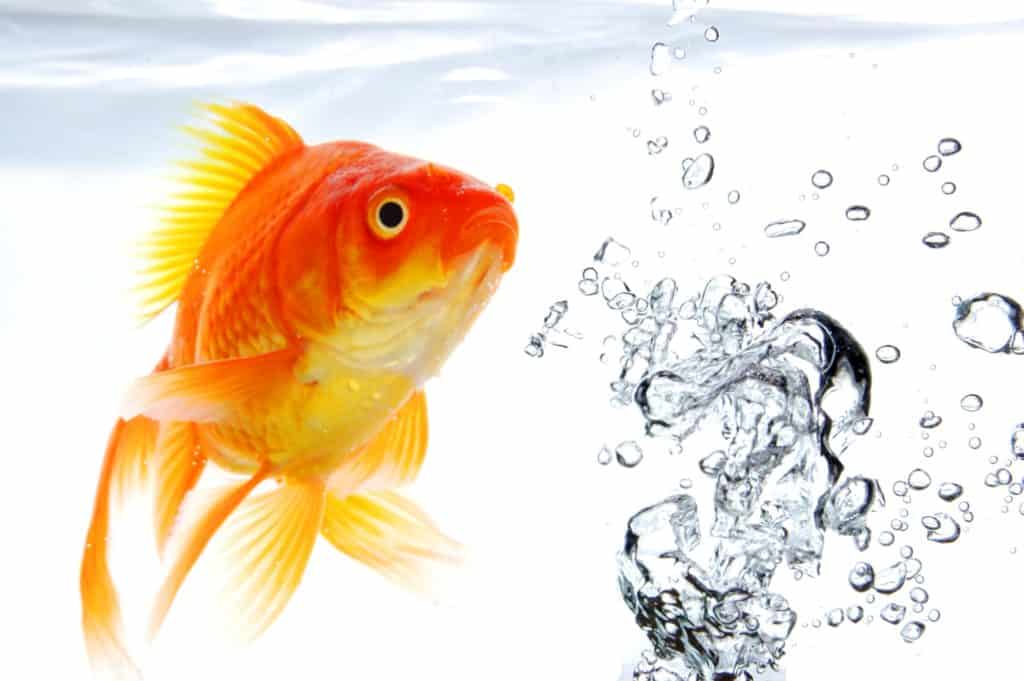
This rarely happens, but sometimes, you get a fish that’s aggressive and bratty for none of the mentioned reasons.
It may almost seem like its personality.
Sometimes they can be alphas and pack leaders, but in any case, if you sense that the fish is causing too much stress for others, you can separate it.
How Can You Prevent Goldfish from Eating Each Other?

If you see your goldfish demonstrating aggressive behavior and you’re worried they might eat each other, here are a few suggestions:
- More Space: Think about getting a bigger tank to reduce the stress and stop the fighting.
- Hiding spots: Add more plants, rocks, and other decorations to provide hiding places for the stressed goldfish, especially the bullied ones. Remember, natural plants are better because they enhance the water quality and provide more oxygen for your fish.
- Food: If you see your fish competing over food, try sprinkling small amounts of food in each corner of the tank, so they can eat separately and in peace.
- Floating box: If nothing seems to stop the madness, you can use a floating box or floating basket and isolate the aggressive fish, especially during feeding time. The fish may even behave itself after being grounded.
- Tank divider: Try using a tank divider if the aggressive behavior continues, even after short-term separation.
What to Do About the Babies
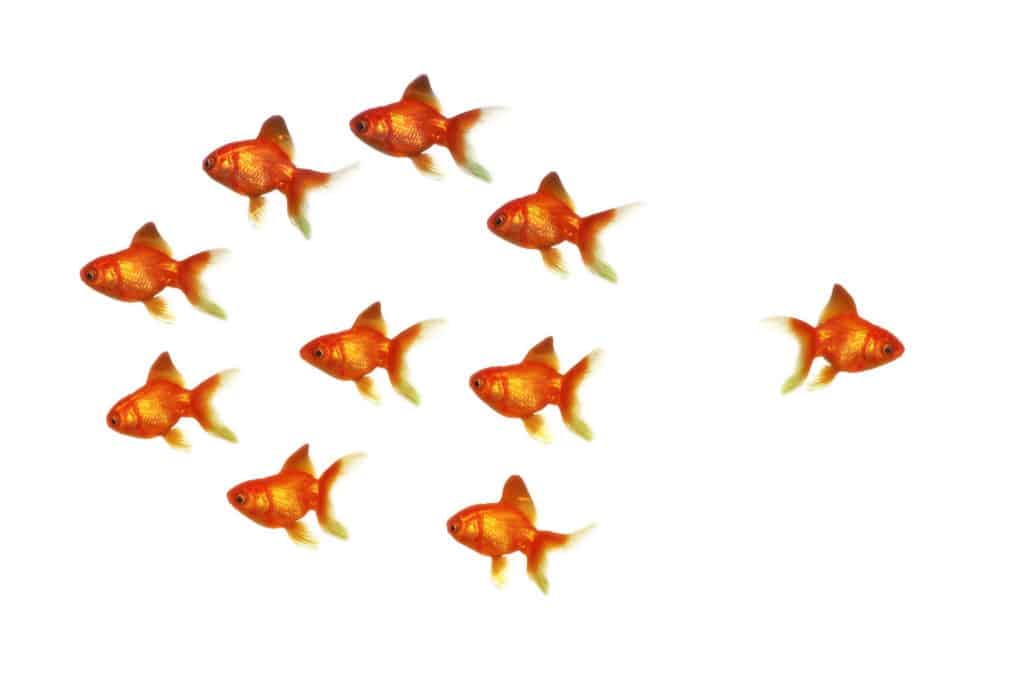
If you really want to breed your goldfish, but the parents have eaten the eggs, try separating them from the main tank.
Separate either the eggs or the fry and put them in a breeding tank with the optimal water conditions.
You can also separate the parents and put them in another tank to reduce the risk of damage to your eggs.
The water should be warm for the eggs to hatch between four to seven days, around 68–74°F.
When the eggs hatch, you can feed the foldfish fry like other goldfish, but in smaller bites.
After the baby goldfish grow to about an inch, you can introduce them to the main tank.
Put them in plastic bags with the same water they’ve been raised in, and float it in the main tank to adjust the temperature.
Then place them in the tank.
It May Not Be What It Looks Like!
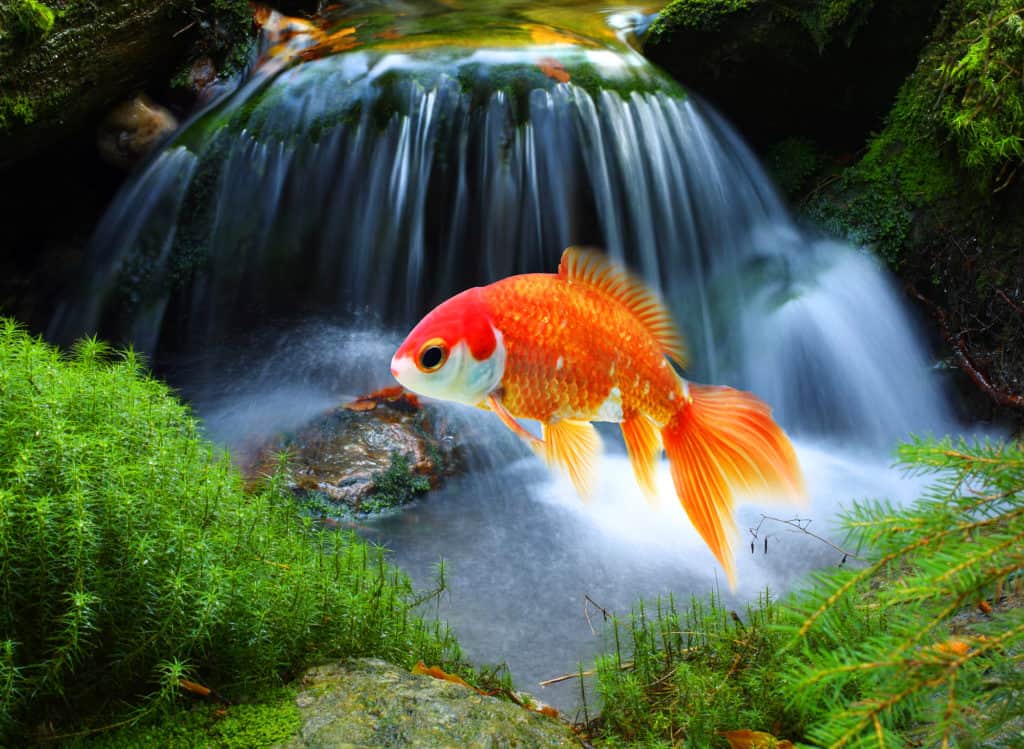
Sometimes you may notice that your goldfish’s fins have been bitten.
At first, you may assume that they’re bite marks, but there are other possible reasons.
The cause can be a disease like an itch or white spot disease.
A parasite that spreads quickly in the tank shows itself as white spots on the goldfish’s body or gills.
You need to move the fish to a separate hospital tank, or else the disease can wipe out your whole aquarium very quickly.
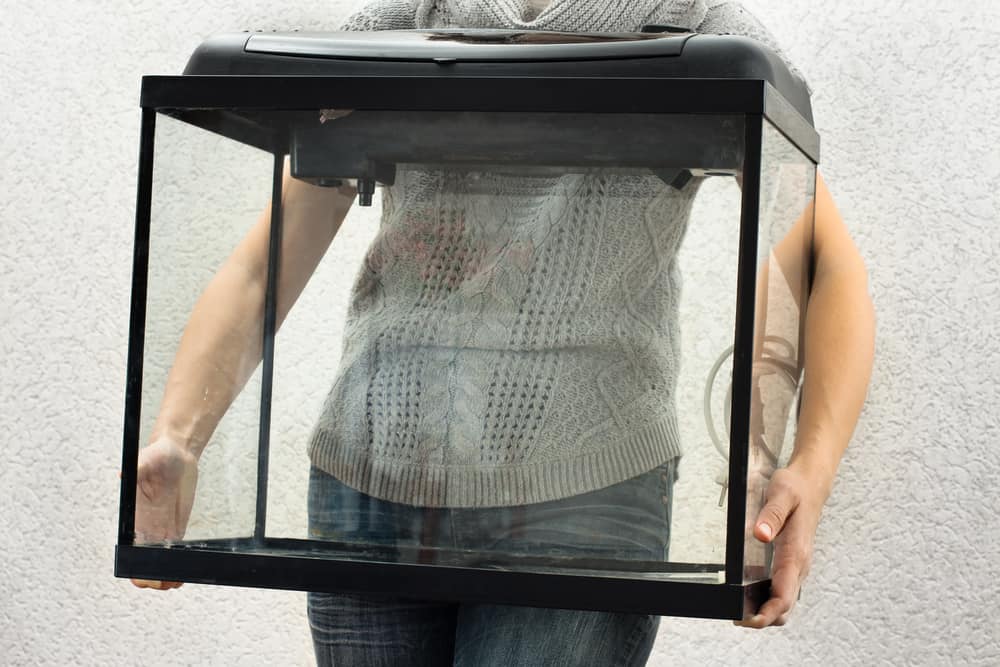
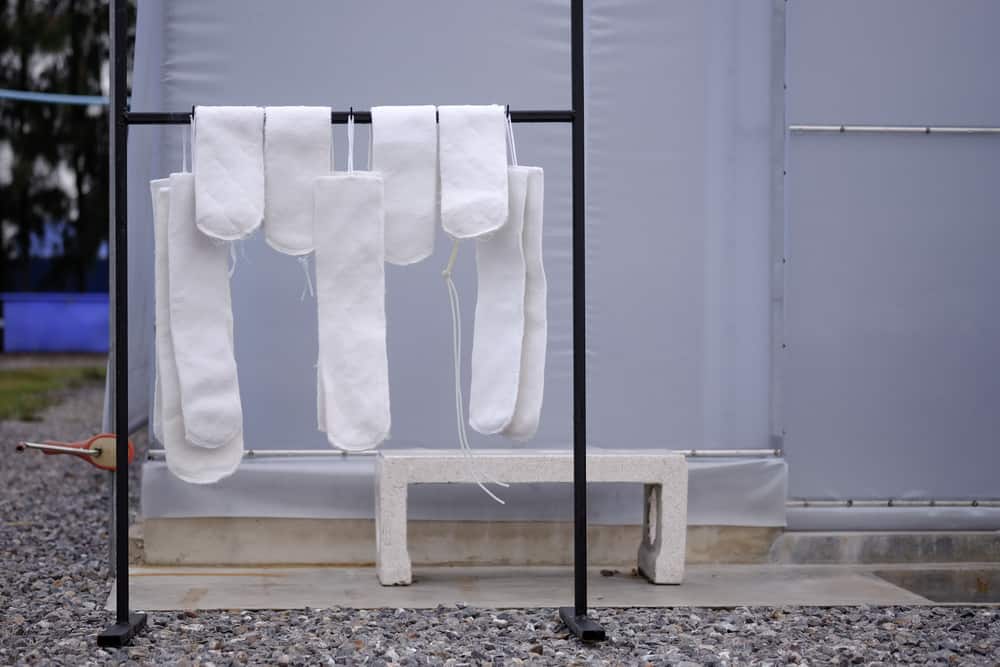
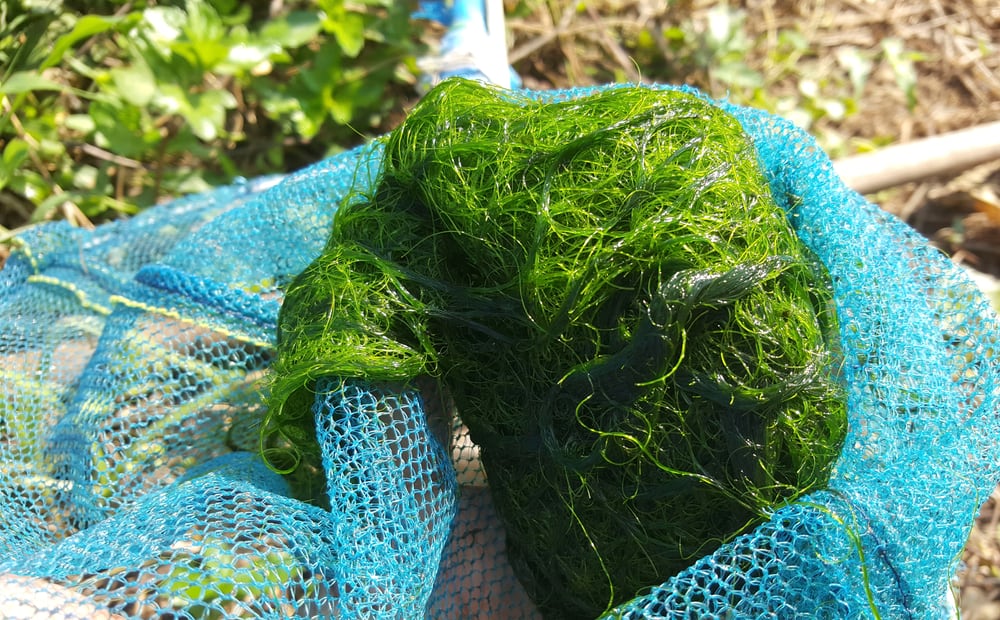
Leave a Reply
You must be logged in to post a comment.